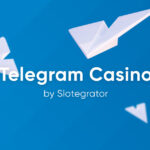Belgium is seeking to ban gambling advertising, with a target deadline for the resolution to become a reality aimed in late 2022. This new project intends to prohibit companies and platforms to advertise on television, radio, social media, posters on the street, in newspapers or via personalized email, mail and/or text messages. This measure would only exclude the lottery.
By the end of the year, nearly all forms of gambling advertising would be banned, as Federal Justice Minister Vincent Van Quickenborne is pushing for a Royal Decree to be introduced to that end.
Regulations for sports sponsorship would also come into force: gambling companies acting as sponsors will only be allowed to advertise by using the brand name or logo, both on the shirts and in the stadiums. Slogans are no longer allowed. Playing commercials on screens or through loudspeakers in stadiums would also be banned. Sports clubs targeting minors may not allow any form of gambling advertising.
In a press release, Van Quickenborne said: “Gambling is the new smoking. The gambling industry is making more and more profit in our country, all thanks to people with a gambling addiction. Gambling advertising is fired at us from all sides every day and encourages these addictions, including among young people. More than 100,000 gamblers show problematic gambling behavior and a third of them already have serious addictions.”
Belgium Federal Justice Minister Vincent Van Quickenborne
This data was provided by a report by the Flemish expertise center of Alcohol and Other Drugs. Problem gamblers have been found to finance up to 40% of gambling companies’ turnover. The sector’s most recent figures pertaining to 2019 show that a total of more than 2 billion euros ($2.1 billion) was spent on gambling, and 64% of the adult population has tried gambling at least once a year. Online gambling increased by 43% during the COVID-19 pandemic.
Bearing in mind that about 40% of online gamblers are younger than 26, and nearly 70% are younger than 39, Van Quickenborne has stated that the increased popularity is the result of “the multitude of advertising reaching the population through various channels”, which has led to “a greater social acceptance.”
“From now on, the philosophy is that only people who want to gamble and actively look for information about games of chance will be confronted with gambling advertising in the future,” Van Quickenborne said.
Even though gambling is prohibited for anyone under the age of 18, advertising makes this sector vulnerable as well, ban proposers say. While regulations in this aspect were tightened in 2018, Van Quickenborne believes that it has not stopped the exponential growth of gambling advertising and also creates a “gray zone” that is “eagerly exploited” by the gambling industry.
Van Quickenborne’s draft Decree has already been approved by the six competent ministers, but has yet to be greenlit by the EU and given a positive opinion by the Council of State before it can effectively enter into force.
However, Francophone liberal MR party leader Georges-Louis Bouchez took to Twitter to voice his dissatisfaction with the proposal saying that MR completely opposed the draft ban and qualified it as “excessive,” and said it will drive people to platforms on the dark web, without any regulation.
The Belgian Association of Gaming Operators (BAGO) has also criticized the proposal, arguing it would cause players difficulty when it comes to distinguishing legal from illegal operators. The association also suggested that it was unfair that the ban would not apply to the National Lottery, the largest gambling advertiser in the country.
Earlier this year, Belgium had imposed tighter controls on gamblers in newsagents after a new package of gambling reforms which obligate shops that offer sports betting and other means of gambling to register all customers and check whether they are of legal age or on a blacklist, starting October 1, 2022. Those measures were also crafted by Van Quickenborne.
Other countries have also acted upon advertising to prevent problem gambling in their jurisdictions. Back in March, Armenia passed a bill that restricted all sorts of ads by casinos, lotteries, bookmakers or other organizations that provide gaming, only allowing in four-star and higher hotels, border checkpoints, companies’ websites and the front of buildings offering gambling.
Some English Football League clubs as well as non-league called on the UK Government in April to ban all gambling advertising within the sport. 20 clubs signed a letter seeking to put an end to gambling sponsorship to try and “challenge the notion that football is dependent on gambling advertising revenues.”





